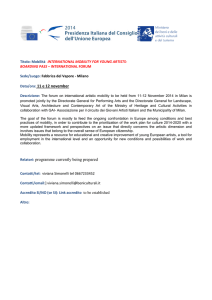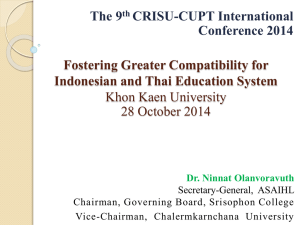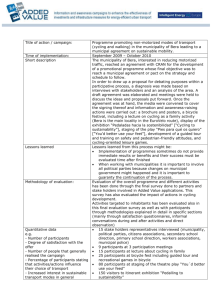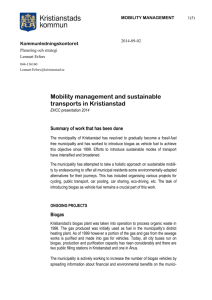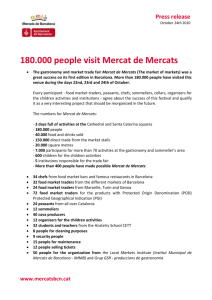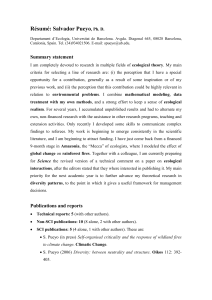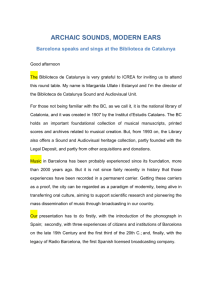A round-table on vulnerable groups closed the first day of the VI
advertisement
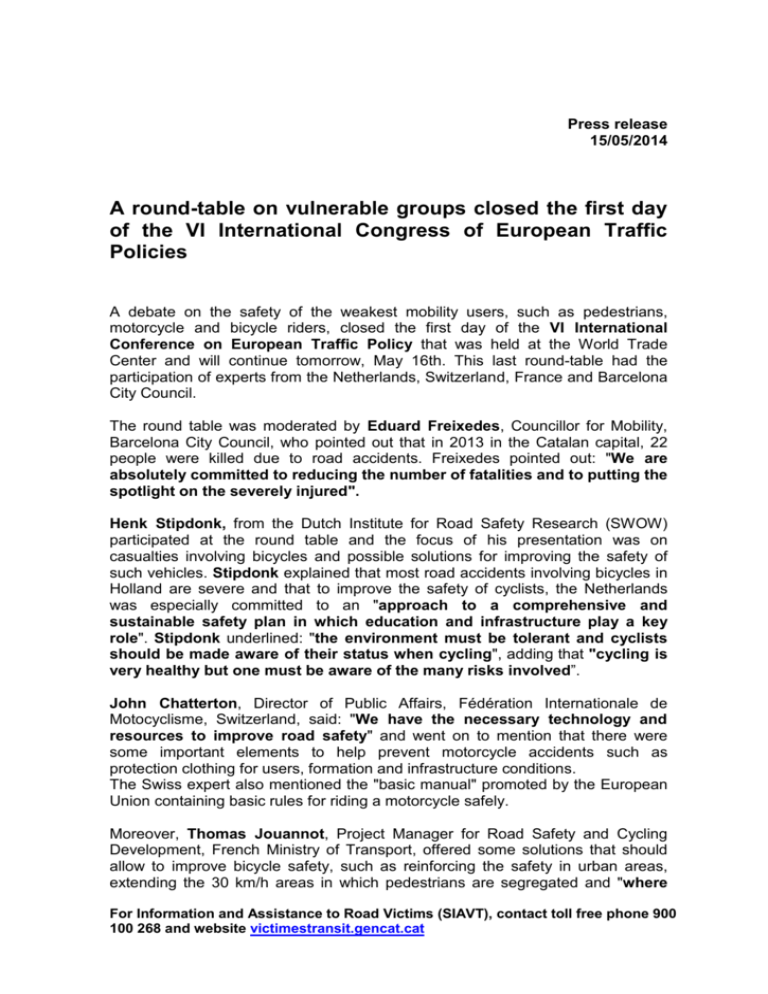
Press release 15/05/2014 A round-table on vulnerable groups closed the first day of the VI International Congress of European Traffic Policies A debate on the safety of the weakest mobility users, such as pedestrians, motorcycle and bicycle riders, closed the first day of the VI International Conference on European Traffic Policy that was held at the World Trade Center and will continue tomorrow, May 16th. This last round-table had the participation of experts from the Netherlands, Switzerland, France and Barcelona City Council. The round table was moderated by Eduard Freixedes, Councillor for Mobility, Barcelona City Council, who pointed out that in 2013 in the Catalan capital, 22 people were killed due to road accidents. Freixedes pointed out: "We are absolutely committed to reducing the number of fatalities and to putting the spotlight on the severely injured". Henk Stipdonk, from the Dutch Institute for Road Safety Research (SWOW) participated at the round table and the focus of his presentation was on casualties involving bicycles and possible solutions for improving the safety of such vehicles. Stipdonk explained that most road accidents involving bicycles in Holland are severe and that to improve the safety of cyclists, the Netherlands was especially committed to an "approach to a comprehensive and sustainable safety plan in which education and infrastructure play a key role". Stipdonk underlined: "the environment must be tolerant and cyclists should be made aware of their status when cycling", adding that "cycling is very healthy but one must be aware of the many risks involved”. John Chatterton, Director of Public Affairs, Fédération Internationale de Motocyclisme, Switzerland, said: "We have the necessary technology and resources to improve road safety" and went on to mention that there were some important elements to help prevent motorcycle accidents such as protection clothing for users, formation and infrastructure conditions. The Swiss expert also mentioned the "basic manual" promoted by the European Union containing basic rules for riding a motorcycle safely. Moreover, Thomas Jouannot, Project Manager for Road Safety and Cycling Development, French Ministry of Transport, offered some solutions that should allow to improve bicycle safety, such as reinforcing the safety in urban areas, extending the 30 km/h areas in which pedestrians are segregated and "where For Information and Assistance to Road Victims (SIAVT), contact toll free phone 900 100 268 and website victimestransit.gencat.cat bycicle users can cycle normally," and two-way streets. According to Jouannot "we must continue to work to ensure that the highway code is suited to all road users, not just to vehicles". Lastly, Joan Delort, Manager of Prevention and Mobility of Barcelona City Council, discussed how the Catalan capital is dealing with the safety of the most vulnerable groups in the public space. Delort focused his speech on the main areas of the Urban Mobility Plan, 2013-2018, which has among its objectives "to preserve and protect the weakest modes of mobility and achieve a modal shift to promote the mobility of pedestrians". As Joan Delort said, some of the new measures that Barcelona City Council is currently promoting to ensure the safety of the most vulnerable sector, include: "reinforcing signals and reducing speed", aside from others that have already been developed, such as extending the 30 km/h areas, inverted priority areas (20 km/h) or high limitation areas (10 km/h). For Information and Assistance to Road Victims (SIAVT), contact toll free phone 900 100 268 and website victimestransit.gencat.cat


